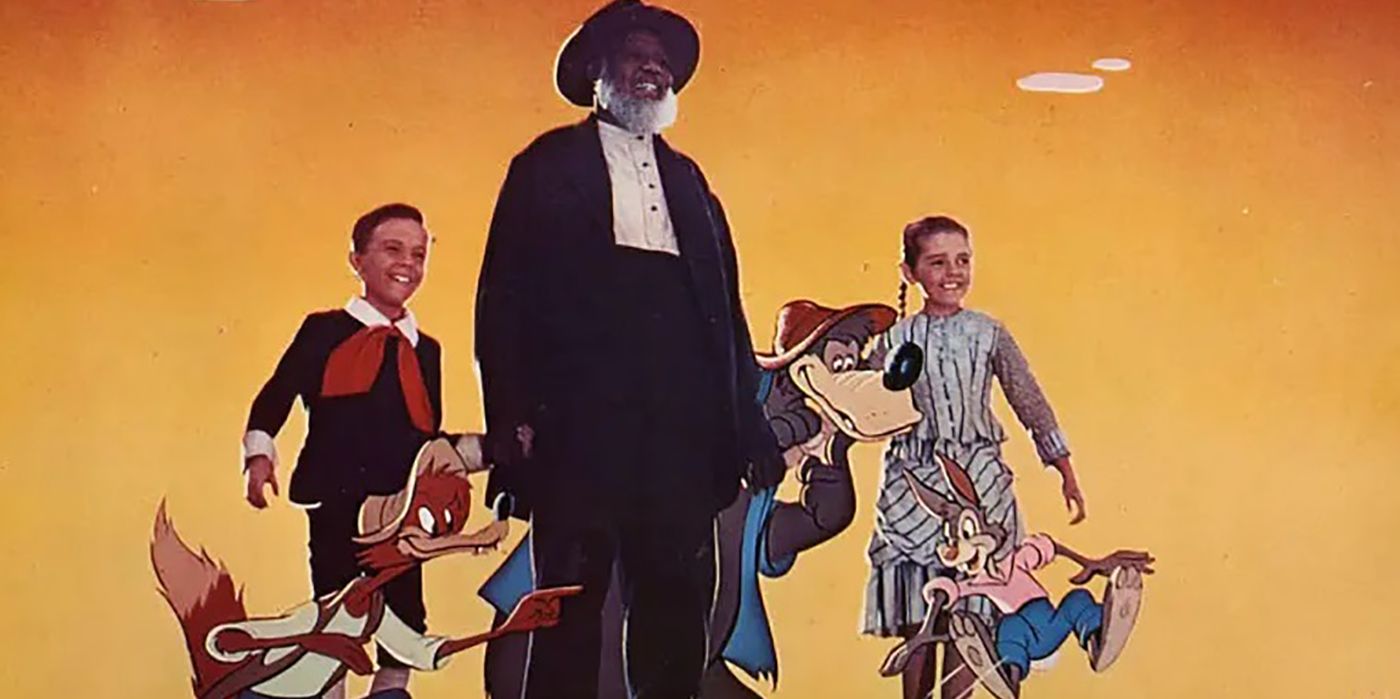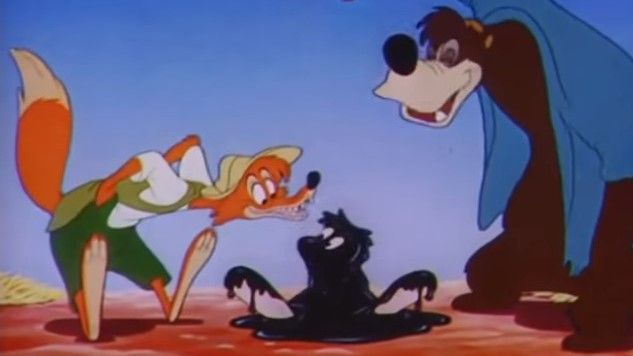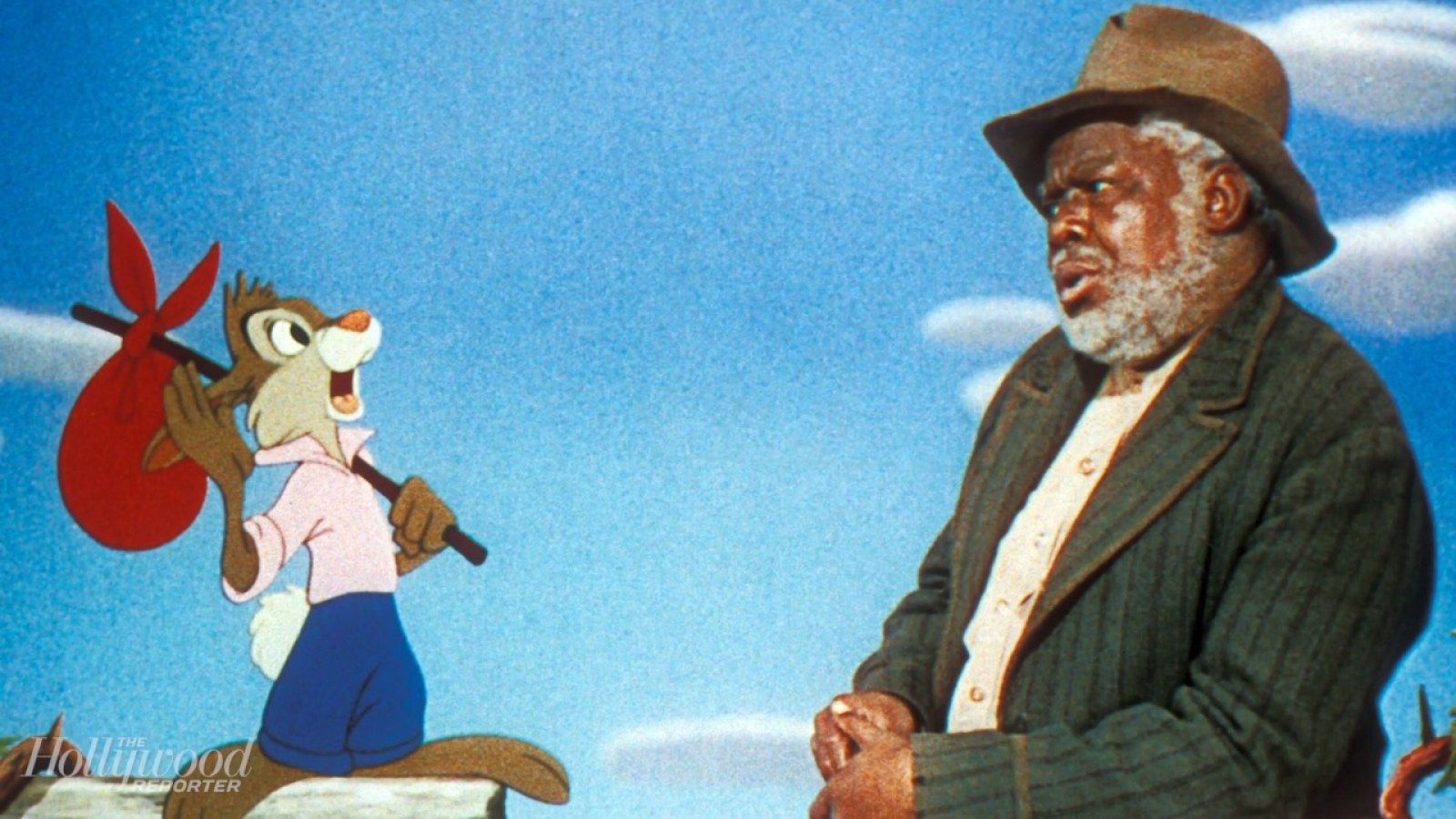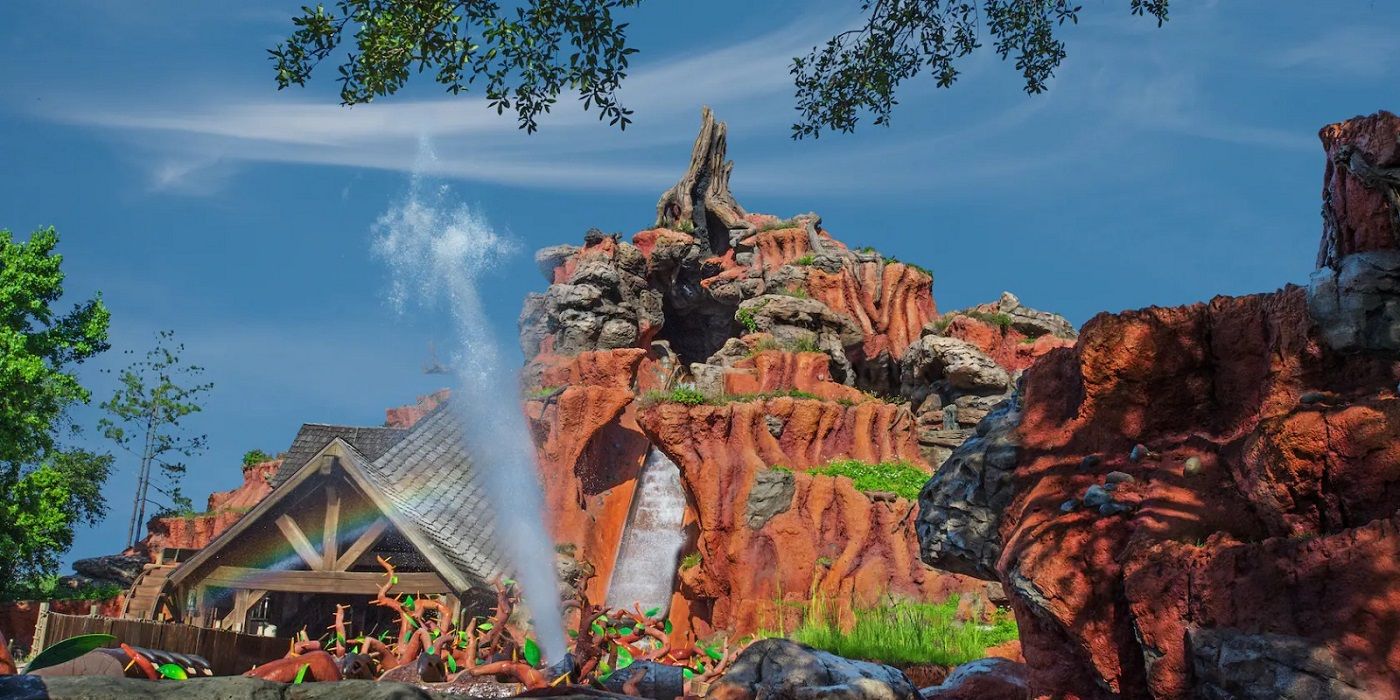The history of Disney's Song of the South is one of cheer, racism, and the odd choice to build an amusement park ride based on a film generations have never seen, or ever will. The film is one filled with mixed messages, taking place in a time after slavery had been abolished, but still depicting black people as subservient to the white. The bright, fun animated characters that harbor a racist subtext, and often an outright proclamation of racism. It's a dark moment in the history of Disney, and one that poses a question about whether the film, or any part of the film, is salvageable in any way.
'Song of the South': What's it About?
The American Civil War has ended, and 7-year-old Johnny (Bobby Driscoll) has gone to visit his grandmother's plantation in Georgia. Only it's not a visit: his parents are separating, and he'll be living at the plantation with his mother and grandmother. The truth is distressing for Johnny, and he leaves to make the journey to his father in Atlanta, sneaking out at night. As he sneaks away, he hears old Uncle Remus (James Baskett) recount folktales about Br'er Rabbit (Johnny Lee). Intrigued, Johnny listens in but is soon discovered by Remus, who tells him a tale about how Br'er Rabbit sought to run away, but changed his mind after meeting up with Br'er Fox (James Baskett) and Br'er Bear (Nick Stewart).
The tale changes Johnny's mind about leaving, and Remus escorts the boy back home. Other events that Johnny gets up to spur new tales about Br'er Rabbit from Uncle Remus, teachable moments that he takes to heart. Unfortunately, his mother's misunderstanding of Uncle Remus' intentions leads to Remus leaving the plantation, but as he does Johnny runs after him and is gored by a bull. Holding on to life, Johnny calls out for Uncle Remus, who is escorted back in. Remus tells another Br'er Rabbit story, and Johnny survives his ordeal. The film ends with Uncle Remus, Johnny, and two other children joining Br'er Rabbit and friends on a walk into the sunset, singing the Oscar-winning "Zip-a-Dee-Doo-Dah."
'Song of the South': Controversial from the Start
The film is based on the Uncle Remus stories written by Joel Chandler Harris, a white man who was a Black rights activist. His works present a troublesome dichotomy, however. Harris preserved African American folklore, but how he interpreted his characters was racist. Walt Disney bought the rights to Harris' Uncle Remus stories in 1939, and went about initiating production on a film. He hired Southern-born Dalton Reymond to draft a script, and he submitted one in 1944. That original script was offensive to Blacks, so much so that the Production Code Administration (enforcers of the Hays Code) strongly suggested changing parts of the script, including substituting "old man" for "old darkie," and "Marse Jawn" switched out for "Mister John." One PCA ask was deemed a priority: it had to be made clear that the film takes place after the Civil War, after the abolishment of slavery (Disney, however, did no such thing with the film, taking away the one thing that may have deflected the criticism hurled against it). To help make revisions, Disney hired an African American, Clarence Muse, as a consultant. He pushed for the Black characters to be portrayed in a positive light, but the response to his suggestions were so bad that Muse resigned before the script was finished.
'Song of the South': No Better After Release
With the timeframe of the film left vague, many assumed that it took place in the pre-Civil War slave era, which wasn't helped with African Americans onscreen happily working on the plantation, or by Uncle Remus being told to leave by Johnny's mother, and not given a chance to explain his side of the story. Even the animated sequences were problematic, with Br'er Rabbit, Br'er Fox and Br'er Bear's speech made "Black," and one sequence in particular that made use of a Tar Baby to lure Br'er Rabbit into a trap. The depiction of the film's African Americans drew the ire of the National Association for the Advancement of Colored People (NAACP), who called it a "dangerously glorified picture of slavery", while the National Negro Congress saw Song of the South as "an insult to the Negro people because it uses offensive dialect; it portrays the Negro as a low, inferior servant; it glorifies slavery." Despite the controversy, the film was successful in its initial release and re-releases in 1956,1972, 1980, and 1986.
'Song of the South': The Legacy
New life was given to the film with the opening of Disneyland's Splash Mountain, a water log ride, in 1989. The ride had customers floating through animatronic scenes taken from the animated portions of the film as "Zip-a-Dee-Doo-Dah" plays in the background (think "It's a Small World" ride, only with a better song). It was an odd decision given the controversy the film had garnered over the years, but Disney officials went on record as saying they "did not expect the ride to provoke criticism because it uses only the animated animal characters." Yet its racist roots were enough to see the attraction shut-down in January 2023, to be revamped with a The Princess and the Frog theme and renamed Tiana's Bayou Adventure. The only other notable reference to the film is a fleeting glimpse of the animated characters in 1988's Who Framed Roger Rabbit.
Otherwise, apart from pirated copies of the film you can pick up if you try (Collider strongly advises against such illicit activity), the film is, for all intents and purposes, dead. Disney executive chairman Bob Iger confirmed that the film will never be released to Disney+, even with the "outdated cultural depictions" disclaimer that accompanies films like Dumbo and Peter Pan. The only piece of the film that is salvageable is the Oscar-winning earworm "Zip-a-Dee-Doo-Dah," a delightful, cheerful tune when taken out of the context of the film. Perhaps it could find life with another Disney property, associating it with something far less controversial as its link to Song of the South gradually fades away. Whether that is a viable proposition, though, rests solely on the public's willingness to allow it, and with the film still generating attention, thanks to pieces like this one. it is unlikely to happen any time soon.





